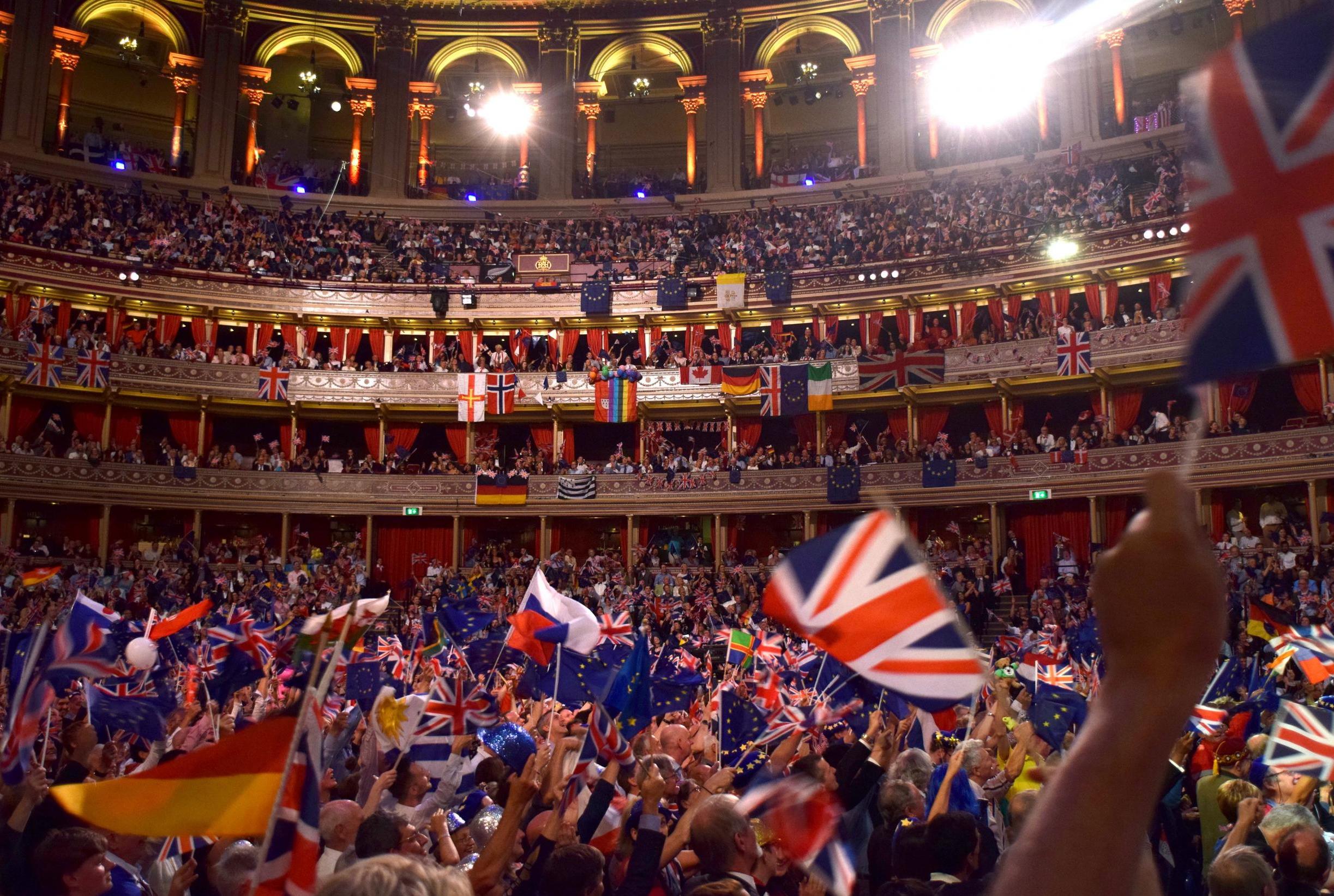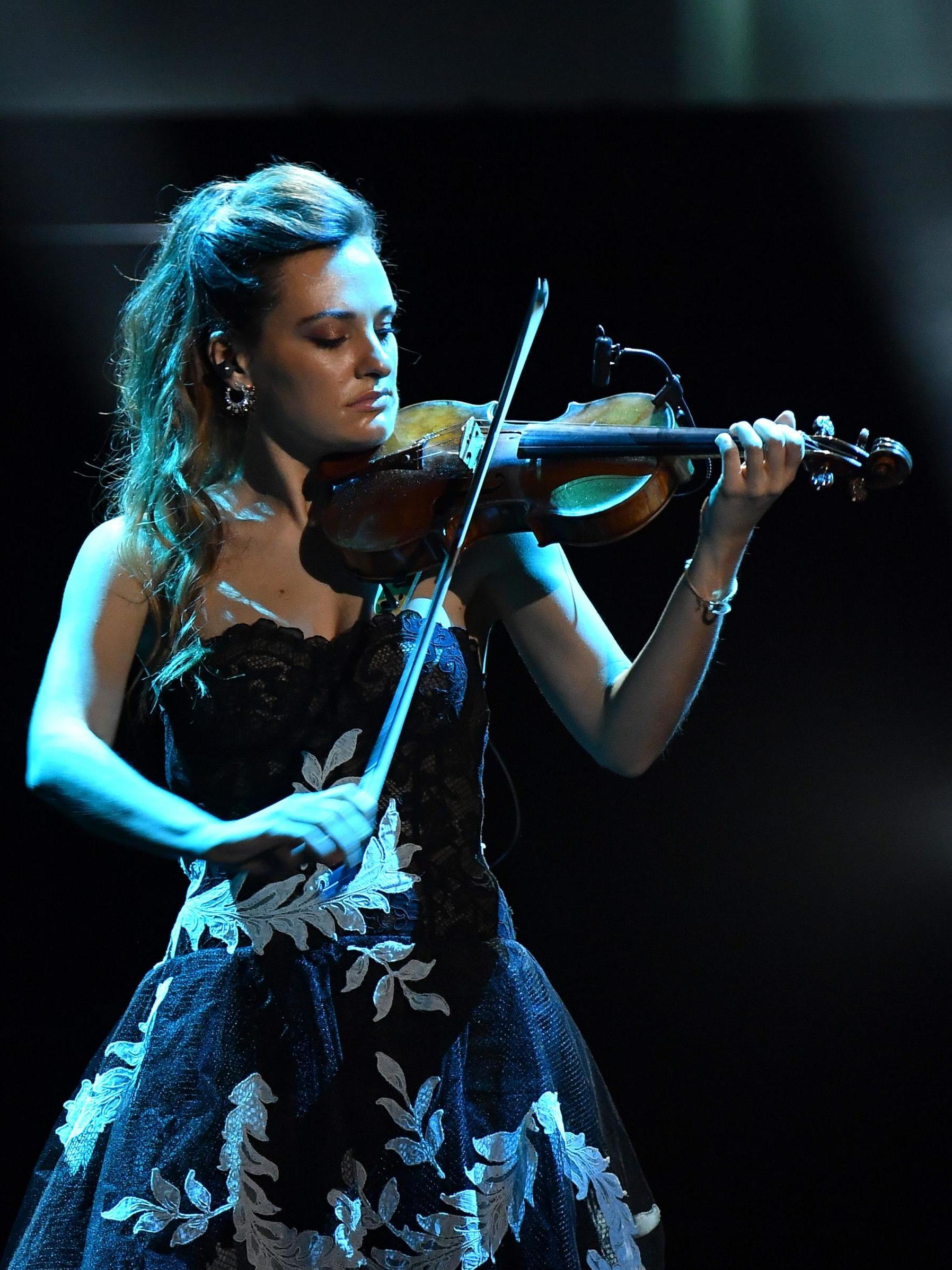Covid-19 was a chance for the BBC to strip Proms 2020 of its infantile jingoism
The government’s bailout will have a palliative effect, writes Michael Church – but instead of promoting a society whose multi-ethnic make-up has never been properly acknowledged, the broadcaster is still encouraging flag waving

The government’s £1.57bn subvention to the culture industries can only be good news, and most of it will be in the form of grants, which is excellent. The way that culture secretary Oliver Dowden was speaking on BBC Radio 4’s Today programme suggested that the main beneficiaries will be institutions rather than individuals, and that allowing audiences back into theatres and concert halls is still far away. But for the prime minister to announce that culture is the soul of the nation, and to back it up with substantial amounts of cash, will be music to the ears of curators, theatre bosses, and opera house directors.
And also to the Royal Albert Hall (RAH), which has recently been on course for bankruptcy: for that, the government’s subvention has come in the nick of time. And it was at the RAH last Friday that the BBC Proms announced their sadly truncated programme for this coming season.
The Proms are the world’s largest and most important annual classical music festival, and as its director David Pickard has pointed out, this will be a Proms season like no other. First and foremost, there will be no audience and the Proms without Prommers verge on the oxymoronic. Moreover, Pickard and his team have apparently tried out dozens of different orchestral seating plans, but none were capable of accommodating a Mahler-sized symphony orchestra while maintaining the requisite social distance. Pickard is now trying to keep a balance between ambition and realism in terms of what he will be able to offer.
There will be a live-streamed opening night, but the following six weeks of concerts will consist of what are being hopefully dubbed “Fantasy Proms” on Radio 3 – recorded Proms highlights from the previous 40 years.

Some of these will indeed be notable. They will include the Proms debut for Chineke! – Britain’s very sparky Bame orchestra – and the 2016 performance of Liszt’s first piano concerto by the fiery and elusive Martha Argerich. There will be the National Youth Orchestra performing Mahler’s majestic Eighth Symphony under Simon Rattle’s direction; a galaxy of Baroque stars in Purcell’s ravishing opera Dido and Aeneas; and Leonard Bernstein will be conducting Mahler’s Fifth. Beethoven’s Ninth, which in real life is now an impossibility thanks to the size of the requisite orchestra and chorus, will be presented under the baton of the late, great Klaus Tennstedt. All these events will be streamed, and all will be marvellous.
The final Proms fortnight will consist of audience-free live-streamed concerts by a cluster of household names including Nicola Benedetti, Mitsuko Uchida, Sheku Kanneh-Mason and his sister Isata, Anoushka Shankar, and the electrifying South African soprano Golda Schultz. But it’s too early to say what each will be performing, or when; Pickard and his team are braced to accommodate many more changes in the ever-shifting official guidelines before they reach the live events at the beginning of September.
There will also be a traditional Last Night, with people being encouraged to wave flags in their living rooms. And in the view of many people, this will be a shame, because the Covid-19 hiatus could have allowed the BBC to strip that event of its infantile jingoism, and to institute something more fitting for a society whose multi-ethnic make-up has never been properly acknowledged in the programme of the Proms. But otherwise, Pickard and co deserve full marks for a gallant try, in exceptionally trying circumstances.
It’s been a tough ride for the classical world; you only need to look at what’s happened to music over the past four months. When the lockdown was enforced, all concerts were cancelled for the foreseeable future, and musical life was halted in its tracks. The current easing of lockdown restrictions – which may well be selectively re-imposed – has not been accompanied by any easing for musicians: concert halls can re-open their cafes, but they are legally forbidden to give concerts and will be for a long time yet. Most musicians are freelances who have not earned a penny for the last four months, nor benefited from any furlough; as arts centres and orchestras begin to go bankrupt – some already have – many musicians now face the prospect of their careers being wiped out for good. The government’s bailout will certainly have a palliative effect in some quarters, but it’s not a panacea.
For the time being, the economics of opera as hitherto conceived look impossible. While opera houses in Germany, for example, get 90 per cent of their income from public subsidy, Covent Garden derives much of its income from the box office: it needs 95 per cent houses to break even, and when half the seats are out of commission for distancing, that conundrum won’t be solved by a one-off governmental gesture, no matter how generous. Front-of-house things like bars and lavatories offer little scope for any distancing at all. Large-scale new concert halls – like the magnificent Elbphilharmonie in Hamburg – may never be built again; the chances of the Barbican’s new super-hall getting built – optimistically promised as a bribe to lure Rattle back to his homeland – now look vanishingly slim.
In response to demand from those of us who are their traditional audience, musicians are busting a gut to find new ways of replicating their art. Immediately after lockdown, they migrated online, en masse: singers and players started streaming, orchestras and opera companies began to broadcast their archival treasures, and ingenious methods were devised to link players and singers from their living rooms in simulated musical synergy with the aid of Zoom.
We are now used to seeing screen-fulls of choristers all singing their hearts out in separate little boxes, and we expect that instrumentalists will keep a wide gulf between themselves and their colleagues in anything orchestral. Such performances may feel stilted, but they go some way towards replacing what we have lost. The first orchestra we saw performing post-lockdown without any distancing was the Czech Philharmonic under the baton of Semyon Bychkov, and very welcome that was: they could take this risk because they’d all been tested for the virus three days before. And it was in Madrid’s Teatro Real that the first post-lockdown operatic performance took place. The singers were kept two metres apart, and the orchestra wore masks; there was a half-capacity audience, each member of which had to be temperature-tested before being allowed in. No-touch features were installed in the toilets, and the interval was lengthened to avoid long queues.
In London, the Royal Opera has been streaming weekly concerts of chamber music. The first of these was an awkward affair, but they’ve now got the hang of it; the concert on 27 June, which focused on young singers from the company’s Jette Parker training scheme, was vivid and heart-warming. Other opera houses are streaming too, but none so inventively as Grange Park Opera, whose production of a shoestring event entitled The View from the Villa has proved – and still is proving – an unexpected success. Led by the pianist Iain Burnside, the show interweaves Wagner’s Wesendonck songs with Tristan und Isolde – which he was composing at the same time – and merges art and life to offer an intriguing chronicle of the break-up of two marriages. It’s still available for streaming on the Grange Park Opera website.
Meanwhile, all aboard for the Fantasy Proms…
Join our commenting forum
Join thought-provoking conversations, follow other Independent readers and see their replies
Comments